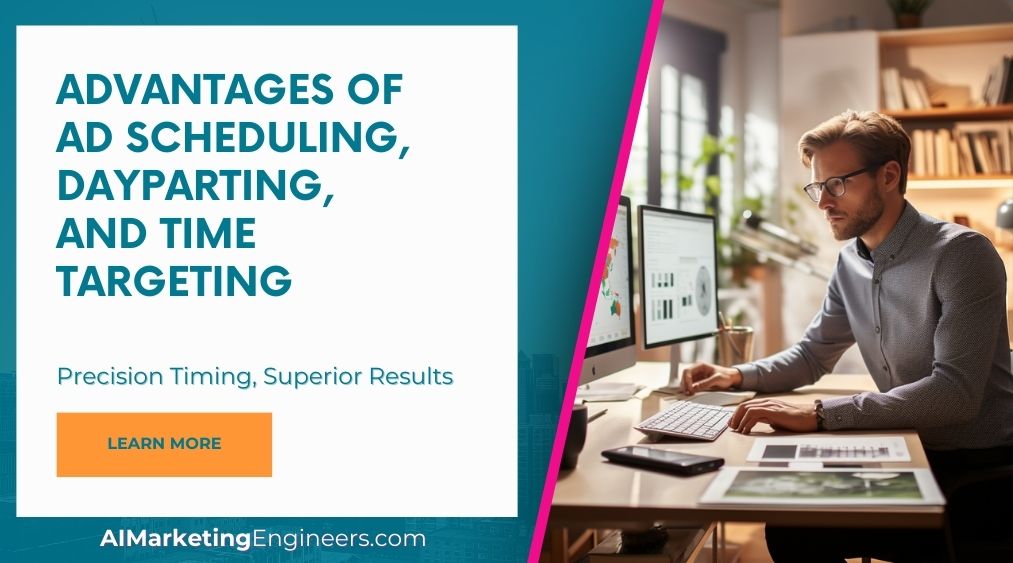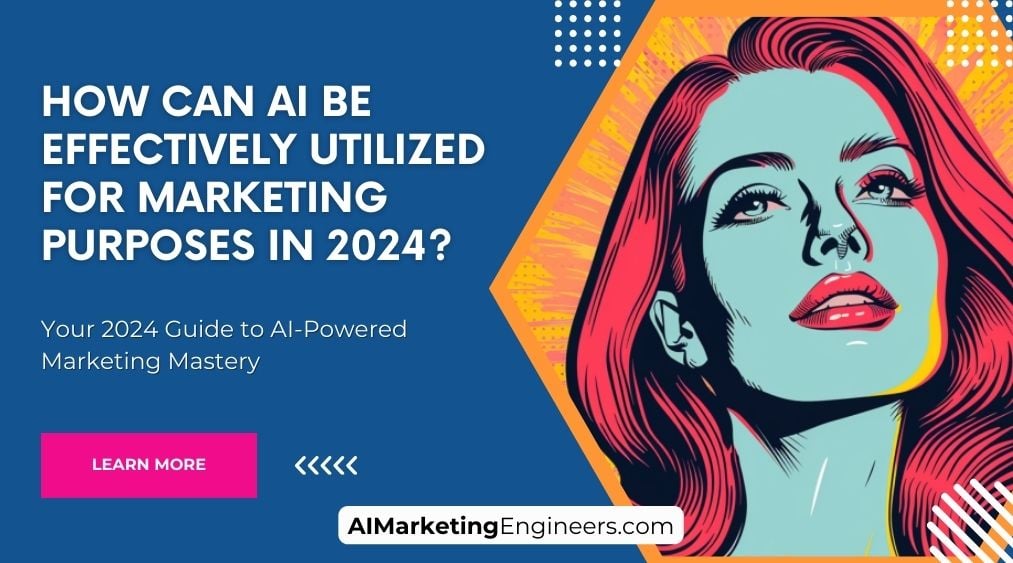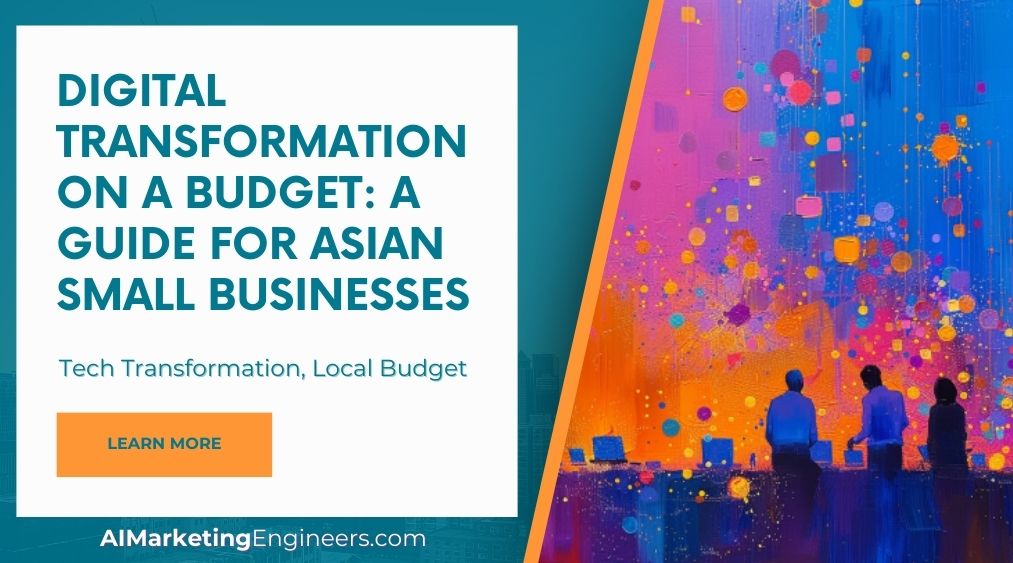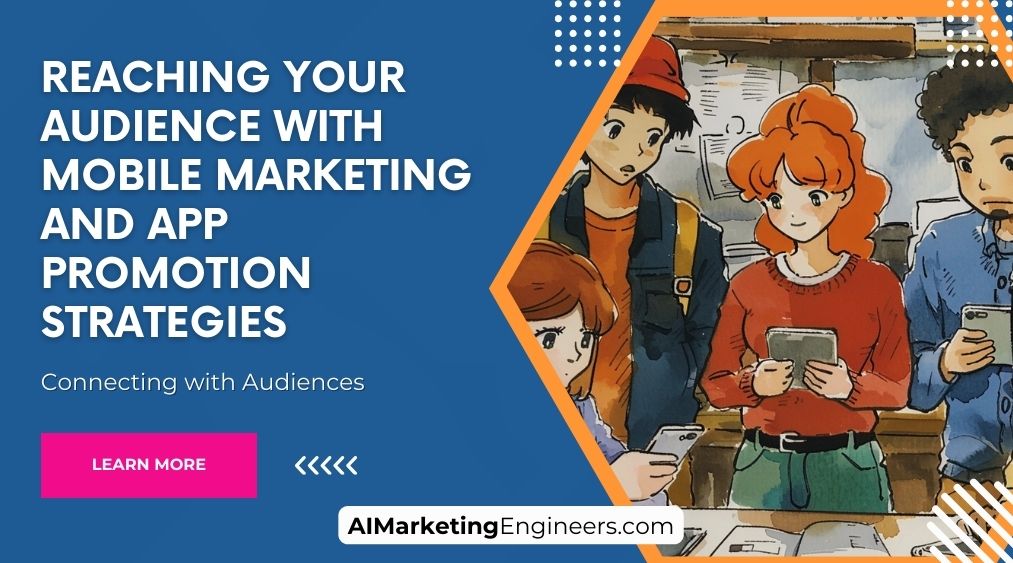Key Takeaways
✅ Proper Conversion Setup and Tracking: Accurate conversion tracking is the backbone of a successful PPC campaign. Statistics show that businesses that track conversions see a 17% higher conversion rate on average. Make sure you're aligning your conversions with your business goals, use relevant dummy values, and don't forget to incorporate offline data for a comprehensive picture.
✅ Keyword Selection and Negative Keywords: The right keywords can make or break your Google Ads performance. Businesses using targeted keywords increase their ad relevance by 50%. Stay ahead by choosing high-intent keywords, implementing strong negative keyword lists to save your budget, and embracing long-tail keywords for a more precise audience reach.
✅ Continuous Testing and Optimization: The PPC landscape is ever-changing, with frequent updates and shifts in user behavior. Businesses that actively test and optimize their campaigns have seen up to a 21% increase in conversions. Embrace AI tools and a mobile-optimized design to ensure you're not left behind.
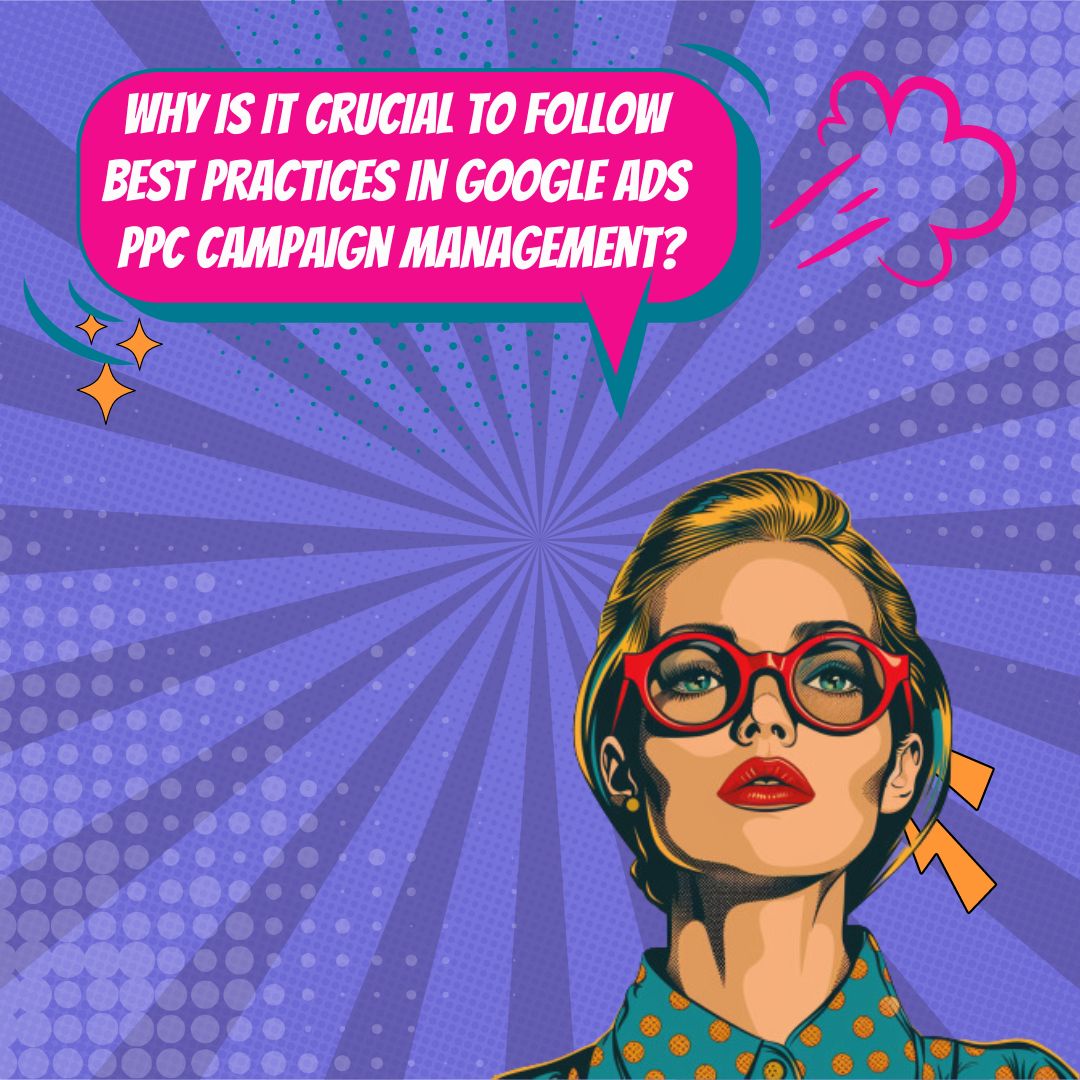
Introduction
Ever wondered how some businesses seem to have cracked the code of online advertising? What makes their ads not just noticed, but massively effective? The answer is Google Ads Mastery: a constellation of strategies and best practices that turn clicks into customers. Whether you're new to the scene or looking to refine your existing efforts, the world of PPC Campaign Management is one filled with immense potential—and pitfalls.
At its core, mastering Google Ads is about harnessing the full potential of digital advertising to maximize revenue, ROAS (return on ad spend), and ROI (return on investment). With a strategic approach, businesses have seen an average increase of 20% in revenue by effectively managing their Google Ads campaigns. This article is your treasure map to the gold mine of Google Ads. We'll be uncovering the latest innovative perspectives, shedding light on modern trends, and serving up a host of solutions to ensure you're not just running ads, but reaping rewards.
Stay tuned as we dive deep into actionable insights and groundbreaking information that will transform your Google Ads from okay to outstanding. Ready to leap ahead of the competition? Let's get rolling!
Mastering Google Ads: Best Practices for PPC Campaign Management
The world of online advertising can often seem like a labyrinth, with its twists and turns determined by the ever-changing algorithms of platforms like Google. But fear not, because Google Ads stands as a beacon of opportunity, a tool designed to fit businesses big or small. Its true genius lies in its flexibility — whether you're managing a shoestring budget or a financial war chest, Google Ads can be tailored to your needs. But how do you unlock this tool's full potential?

Understanding the Full Potential of Google Ads
Let’s start by peeling back the layers of Google Ads. Did you know that it provides an expansive range of targeting options that lets you handpick who sees your ads? Think about that for a second. This means you can use demographic insights, interests, and even specific times of day to reach the right audience. This level of customization is not just a luxury; it's essential for making the most out of every single penny in your budget. Are you leveraging the platform's targeting features to ensure you’re not shouting into the void?
Maximizing Your Google Ads Campaign Success
So, you’re ready to dive deep into the Google Ads sea. Charting a course starts with setting clear campaign objectives. What do you want to achieve? More traffic? More sales? Once you know, everything you do from then on should help you reach that goal. Then there’s keywords — the compass of PPC campaigns. Conducting thorough keyword research is a must if you want your ads to be seen by eyes that are eager to see them. But it’s not just about being seen. Once a potential customer clicks, the voyage shouldn't end in confusion. Optimizing ad copy and landing pages creates a cohesive narrative that carries them toward a purchase. And remember, the market's tides are ever-changing. Regular testing and optimization of ad creatives, along with vigilant monitoring and adjusting of bids and budgets, can keep your campaigns sailing smoothly towards profitability. Are your campaigns optimized for both attraction and conversion?
Partnering with Experts for Google Ads Excellence
While some may try to sail solo, there's undeniable value in having a seasoned crew. Partnering with expert strategists can be the wind in your sails, propelling you toward campaign strategy success that's perfectly aligned with your business goals. Skilled professionals can transform ad copy and landing pages from mere stopovers to captivating destinations. And when the campaign is live and collecting data, experts analyze and tweak, ensuring your ad spend is not just an expense, but an investment. Are you tapping into expert knowledge to steer clear of the common pitfalls in Google Ads management?

Cracking the Code to Consistent Profits with Google Ads Mastery
Success in Google Ads doesn’t have to be a hit-or-miss. It's about having a system for finding profitable advertising opportunities. Those who have been through the wringer know where to find them, and more importantly, how to capitalize on them. The key lies in building accounts and campaigns strategically; understanding the nuances can mean the difference between an ad that resonates and one that flops. Gaining an insider view of managing Google Ads accounts provides a treasure map for success. But it’s not just about managing; it’s about creating a repeatable roadmap for successful PPC advertising campaigns that consistently turn clicks into customers. Are you equipped with the roadmap and wisdom for long-term profitability in your advertising efforts?
Jumpstarting Your Skills and Outperforming the Competition
In the end, mastering Google Ads is about combining knowledge with execution. Learning PPC marketing in an easy to digest format can accelerate your expertise and have you outmaneuvering your competition. With lifetime access to Google Ads Mastery, you hold a living, breathing resource that grows with you as you hone your skills. And when the waters get choppy, it's the expert guidance and support that can see you through to calmer seas. Are you investing in continuous learning and expert guidance to stay ahead in the game?
Understanding and leveraging Google Ads can transform the trajectory of your business. It's about more than just clicks and impressions; it's about creating meaningful connections that drive revenue. So, how will you harness the full power of Google Ads for your campaigns?
AI Marketing Engineers Recommendation
Recommendation 1: Utilize Responsive Search Ads with Machine Learning for Enhanced Performance: Dive into your Google Ads strategy by making full use of Responsive Search Ads (RSAs). Leverage machine learning to automatically test different combinations of headlines and descriptions and learn which perform best. According to Google, advertisers who switch to RSAs have seen their clicks and conversions increase by an average of 5-15%!

Recommendation 2: Integrate Detailed Audience Segmentation with Custom Intent Audiences: Step up your game by embracing audience segmentation. Create Custom Intent Audiences to target users who are actively searching for products or services similar to yours. Google's own data suggests that advertisers using Custom Intent Audiences see a 20% increase in conversion rates, making it a trend worth following.
Recommendation 3: Implement Smart Bidding Strategies for Real-Time Optimization: Empower your PPC campaigns by utilizing Smart Bidding, a set of automated bid strategies that use machine learning to optimize for conversions. With Google reporting improved conversion rates by up to 30%, Smart Bidding strategies like Target CPA and Target ROAS can adjust bids in real-time, maximizing the impact of your ad spend.
Relevant Links
- Conquering Chinese Social Media: Your Ultimate WeChat Guide!
- Capture the Short-Video Craze in China: Strategies for Douyin & Kuaishou!
- Seize South Korea's Video Marketing Scene: Trends and Winning Strategies!
- Soar to SEO Success: Your Guide to South Korean E-commerce!
- Unlocking the German Digital Market: Master SEO on Google.de!
Conclusion
In the fast-moving digital landscape, Google Ads Mastery: Best Practices for PPC Campaign Management is not just beneficial—it's essential. Diving into Google Ads, we recognize its vast potential, a platform where any business, regardless of size, can tailor their advertising efforts to match their specific goals. Substantial success hinges on mastering techniques to maximize campaign performance.
From the groundwork of setting crystal-clear objectives to the nuanced task of refining ad copies and landing pages, each step paves the way for a stronger performance and better returns on investment. It's clear that ongoing testing, tweaking, and analyzing are the beating heart of an effective PPC strategy. But it's not just about what you do—it's about how you do it. The strategic partnership with expert marketers can elevate your campaigns from good to exceptional, offering a comprehensive campaign strategy that is skillfully executed and perpetually optimized.

At its core, cracking the code to consistent profits with Google Ads is about committing to a system that uncovers profitable advertising opportunities and constructs campaigns with the precision of an expert. Whether you're building accounts, managing search ads, or learning how to create the roadmap for successful PPC campaigns, it's an investment in your business's future.
Finally, leapfrogging the competition requires an attitude of continuous learning and applying these best practices in a digestible format. With lifetime access to Google Ads Mastery resources and ongoing support from seasoned professionals, you're not just staying ahead—it's about outperforming your competition day after day. Let these insights not only be a reflection but a call to action. Unleash the full power of Google Ads and turn your advertising into a profit-generating machine.
FAQs
Question 1: What is Google Ads?
Answer: Google Ads is an advertising service by Google for businesses wanting to display ads on Google and its advertising network. Businesses use it to set a budget for advertising and only pay when people click the ads, known as pay-per-click (PPC).
Question 2: How do Google Ads work?
Answer: Google Ads allows businesses to create ads that appear on Google's search engine and other Google properties. Advertisers bid on certain keywords in order for their clickable ads to appear in Google's search results.
Question 3: What is the difference between Google Ads and Google AdWords?
Answer: There's no difference! Google AdWords was the original name of Google's advertising service. In 2018, it was rebranded to Google Ads.
Question 4: What is the difference between Google Ads and Google Analytics?
Answer: Google Ads is for advertising your product or service on Google and partner sites, while Google Analytics analyzes the traffic to your website and gives you insights about your audience's behavior.
Question 5: What is frequency capping in Google Ads?
Answer: Frequency capping in Google Ads allows advertisers to restrict the number of times a particular advertisement is shown to the same user.
Question 6: What are the different types of automatic bidding strategies in Google Ads?
Answer: Google Ads offers several automatic bidding strategies including Maximize Clicks, Target Search Page Location, Target Outranking Share, Target CPA, Enhanced CPC, and Target ROAS.
Question 7: What are the targeting options in search network ads?
Answer: Search network targeting options include keyword targeting, location targeting, device targeting, day and time targeting, and more.
Question 8: What are the targeting options in display ads?
Answer: Display ad targeting options can include demographics, interests, remarketing lists, and even specific placements or topics.
Question 9: How can you improve landing page quality in Google Ads?
Answer: Improving landing page quality involves creating relevant and original content, having transparency about the nature of your business, making navigation easy for users, and driving visitors to your page with accurate and clear ad text.
Question 10: How can you track conversions in Google Ads?
Answer: You can track conversions by using Google Ads conversion tracking, which lets you see what happens after a customer interacts with your ads.
Question 11: What is the difference between CPM, CPC, and CPV bidding?
Answer: CPM stands for Cost-Per-Mille (cost per thousand impressions), CPC is Cost-Per-Click, and CPV stands for Cost-Per-View for video advertisements.
Question 12: Can PPC be suitable for small businesses?
Answer: Yes, PPC can be a very effective marketing strategy for small businesses, offering them the ability to control their ad spend and target specific customers.
Question 13: What are invalid clicks, and how does Google detect them?
Answer: Invalid clicks are interactions with ads that are not genuine, like accidental clicks or clicks driven by bots. Google has sophisticated systems to identify and filter out invalid clicks from your reporting and billing.
Question 14: Why do agencies use broad matches with negative keywords instead of phrase or exact match keywords?
Answer: Broad match with negative keywords can help capture a wider audience while filtering out irrelevant searches, often resulting in a better ROI.
Question 15: What are the challenges faced in a Google Ads career?
Answer: Keeping up with the frequent changes and updates within Google Ads and adapting strategies accordingly is a constant challenge faced by professionals.
Question 16: What is the best Quality Score?
Answer: A Quality Score is Google's rating of the quality and relevance of both your keywords and PPC ads. High scores typically lead to lower costs and better ad positions.
Question 17: How can you practice using Google Ads?
Answer: Practice with Google Ads can be done by trying out different campaign types and settings in a demo account or by using Google Ads' training resources and certifications.
Question 18: What is the Google Ads API?
Answer: The Google Ads API is a programmable interface that allows developers to interact directly with the Google Ads platform to automate actions and pull data.

Academic References
- Cho, C. H., & Cheon, H. J. (2004). Why Do People Avoid Advertising on the Internet?Journal of Advertising, 33(4), 89-97. This study explores user behavior towards online advertising and provides insight into the effectiveness of different advertising strategies, including Google Ads, in managing Pay-Per-Click (PPC) campaigns.
- Davis, J., & Khazanchi, D. (2008). An Empirical Study of Online Advertising Effectiveness: An Individual Level Analysis. Information Systems Journal, 18(1), 53-72. This paper discusses the variables affecting the success of online advertising campaigns, offering a background to understand the nuances of Google Ads campaign management.
- Goldfarb, A., & Tucker, C. (2011). Online Display Advertising: Targeting and Obtrusiveness. Marketing Science, 30(3), 389-404. This research evaluates the balance between ad targeting precision and user perception, an important consideration in crafting successful Google Ads campaigns. Lewis, R. A. (2010). Where's the Wear-Out? Understanding the Effects of Advertising Saturation. Journal of Advertising Research, 50(4), 356-367. This article offers insights into how frequency can affect PPC campaigns and the importance of fresh content and ad copy in Google Ads.
- Luo, M. M., & Remus, W. (2004). Understanding PPC Internet Advertising Business Model and its Strategies: A Conceptual Framework. Journal of Revenue & Pricing Management, 3(2), 164-182. This foundational piece describes the PPC model and provides a strategic framework that can be applied to Google Ads PPC campaign management.

